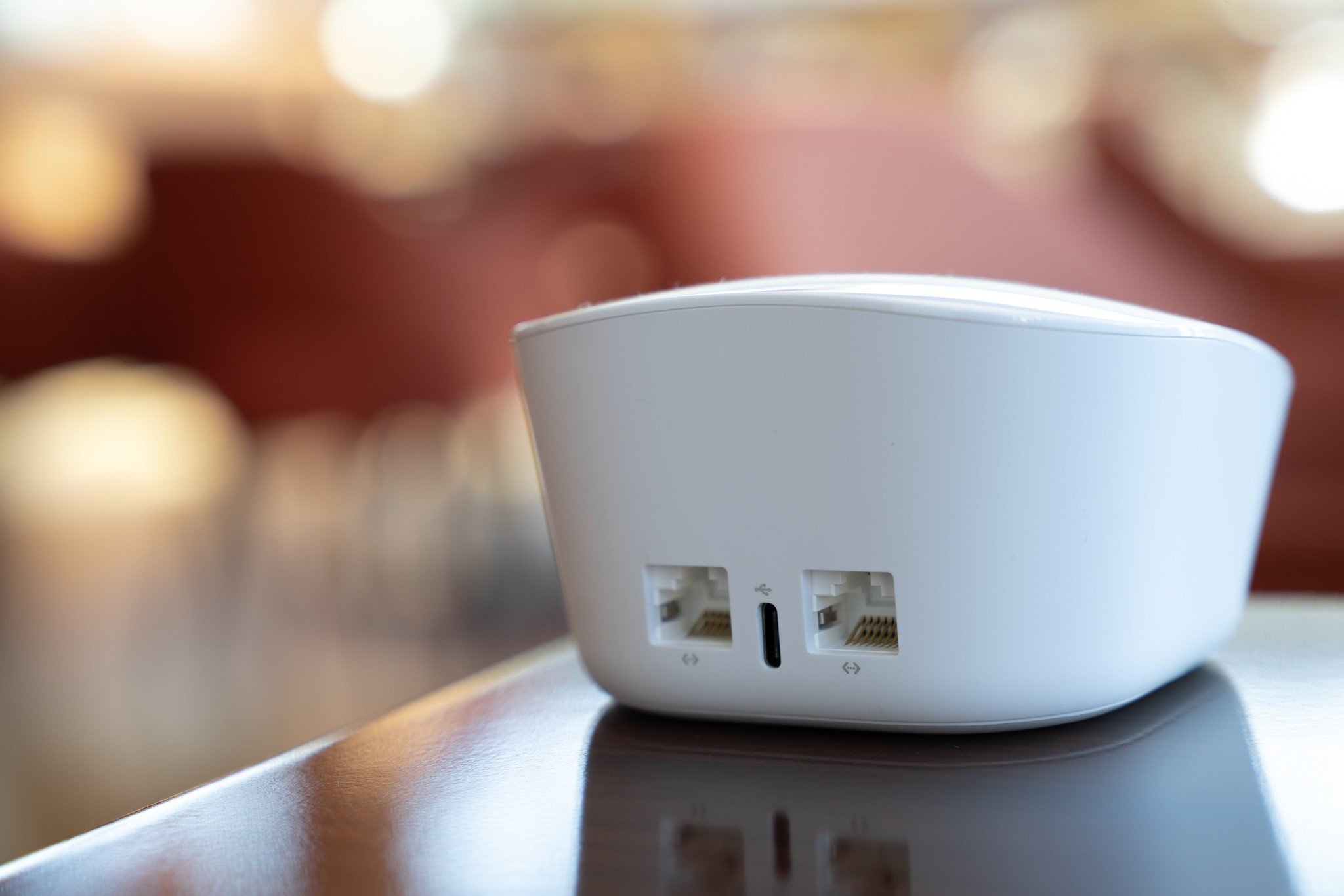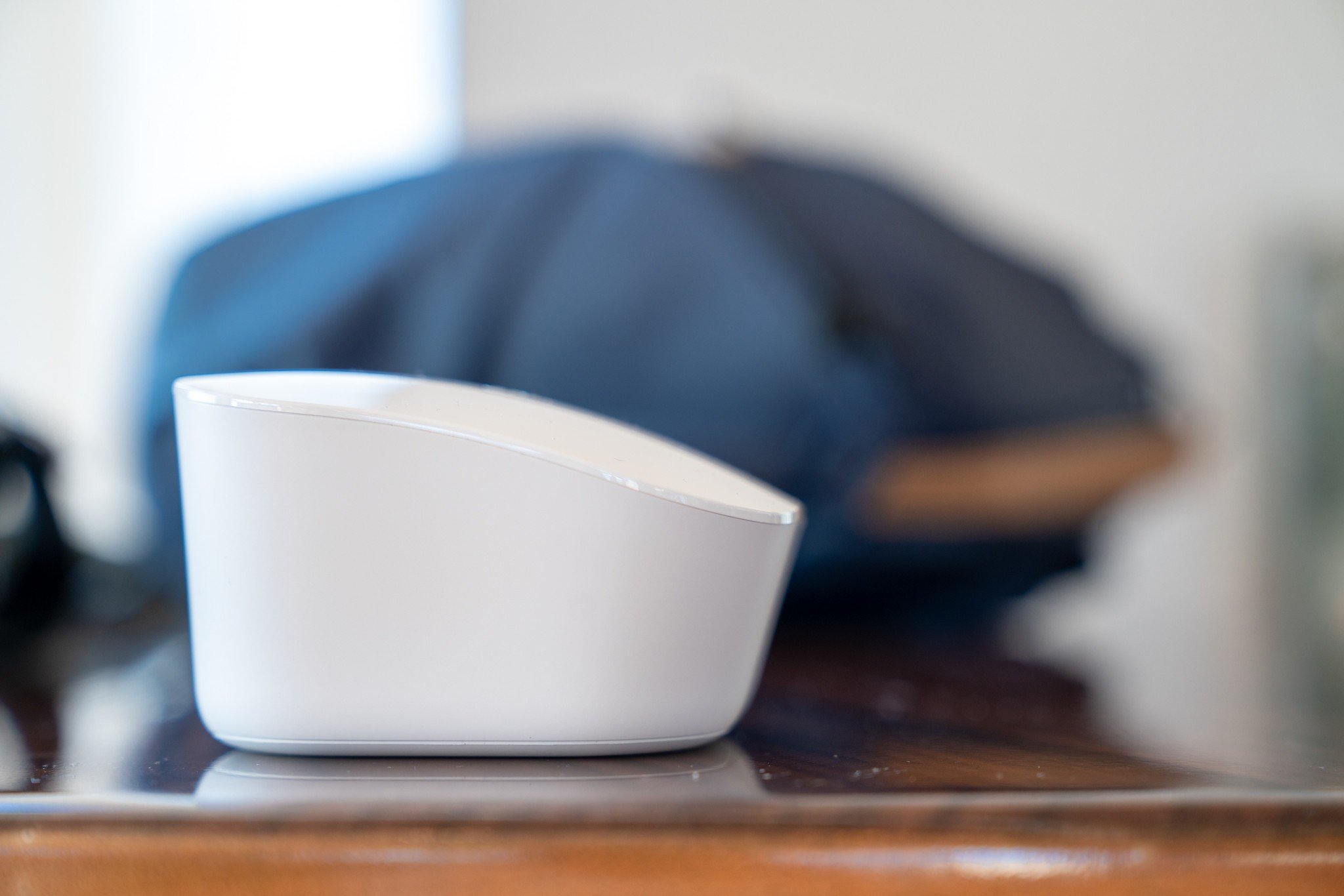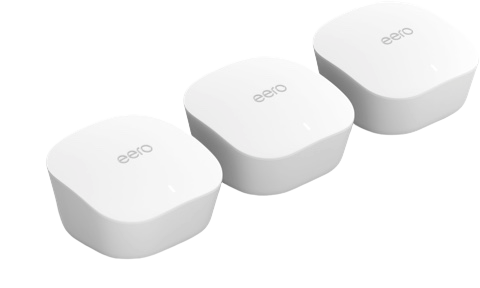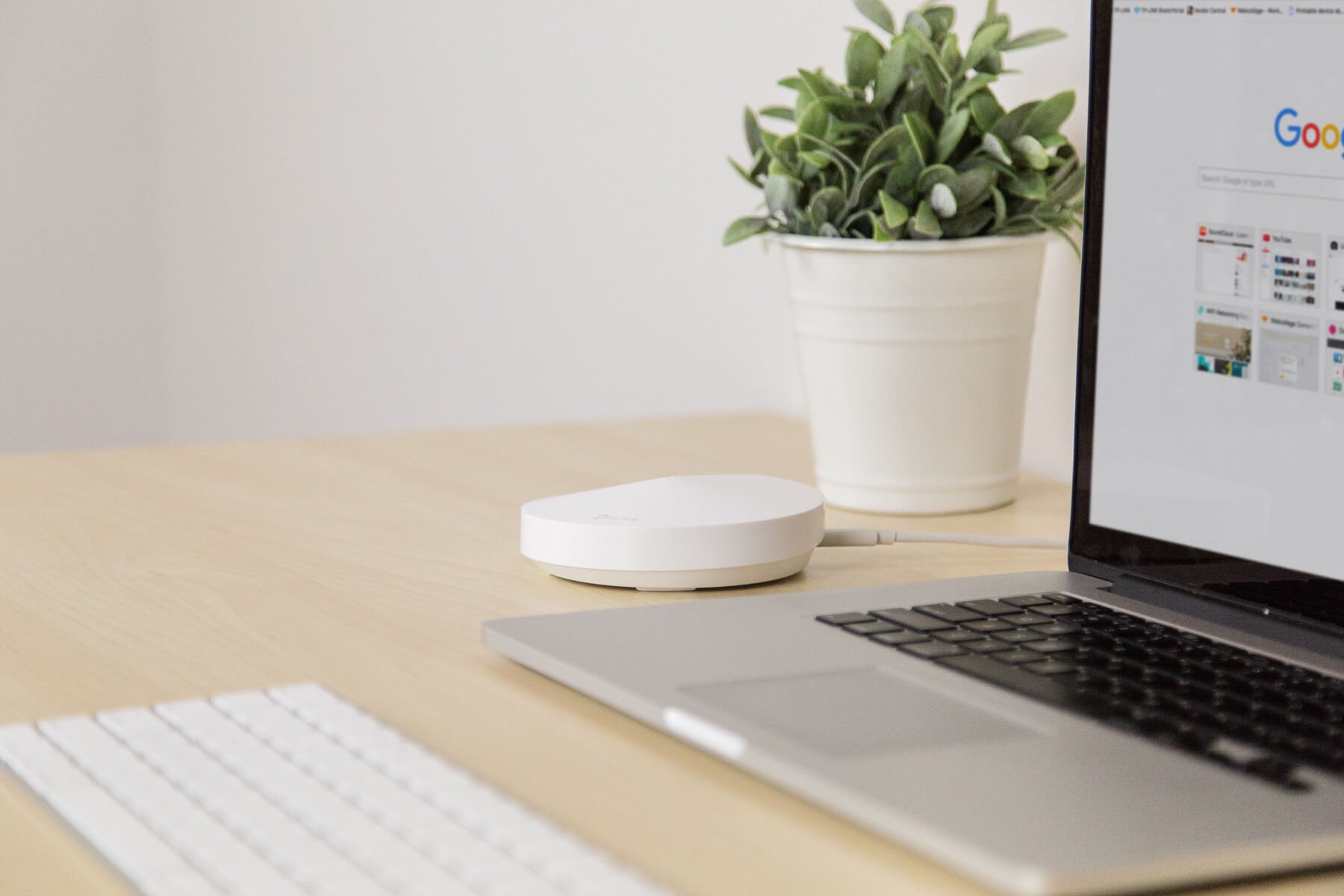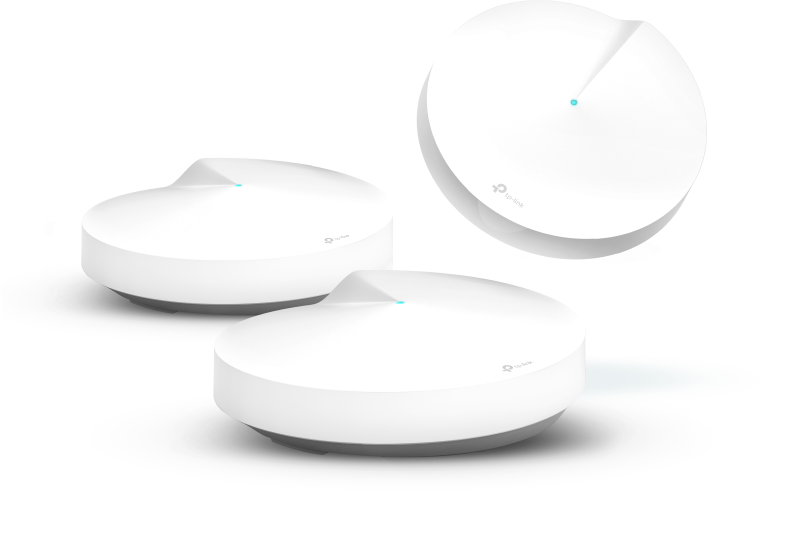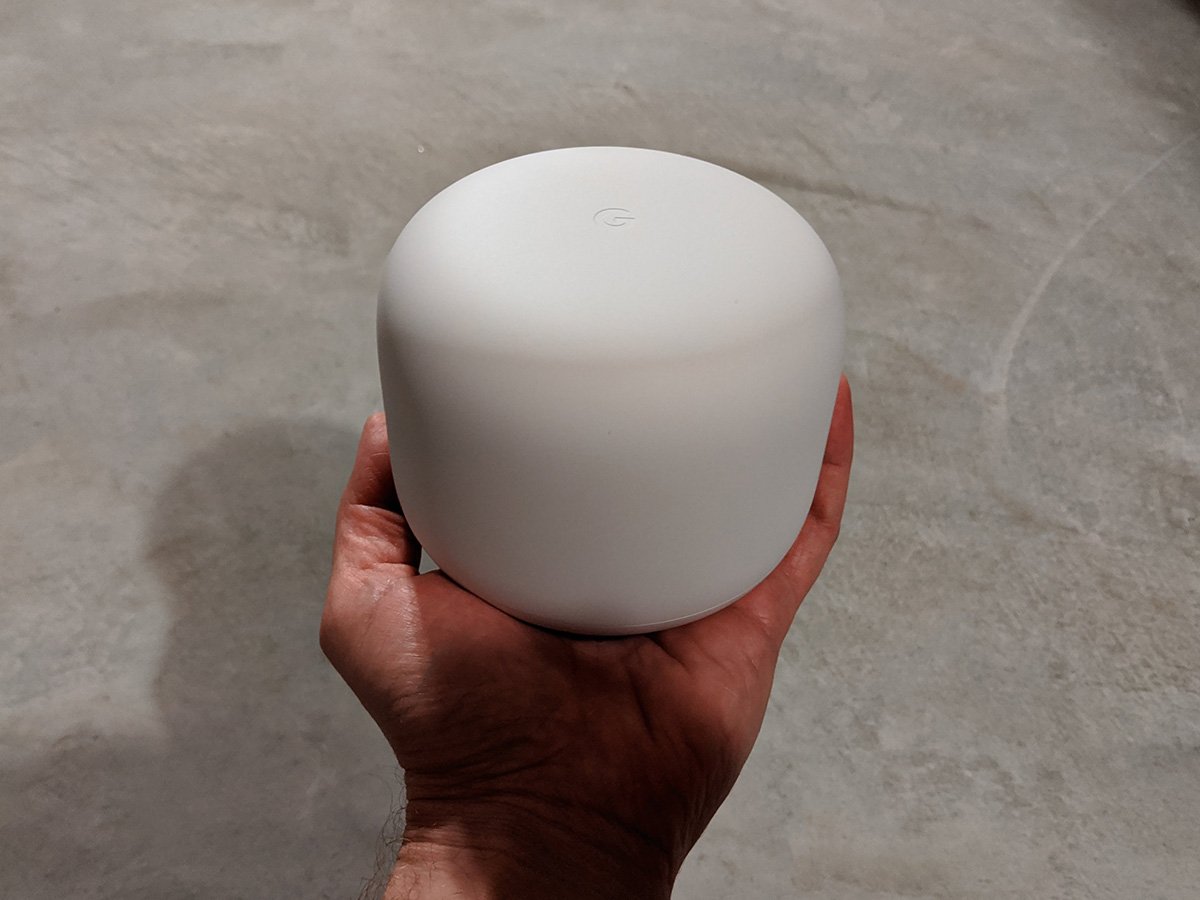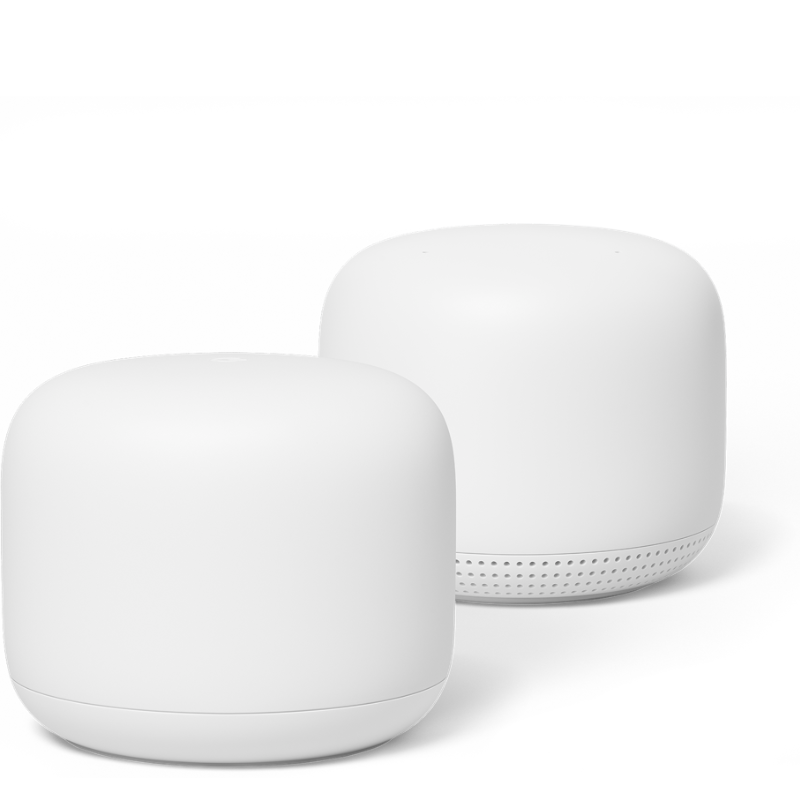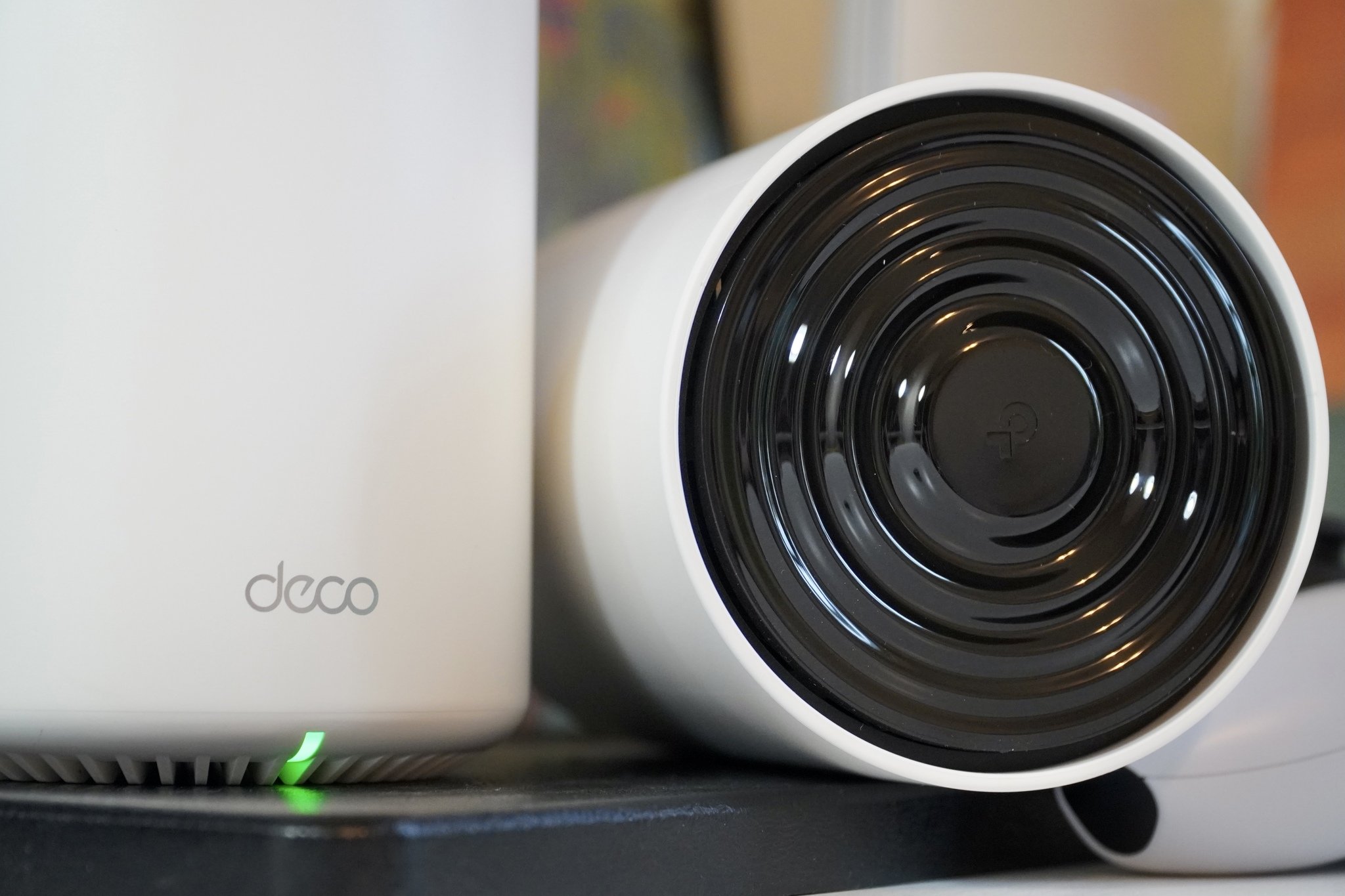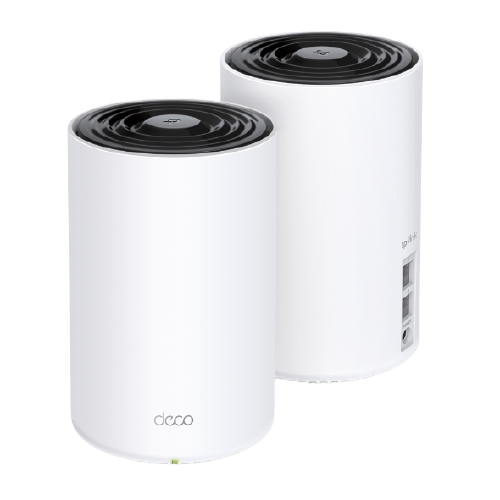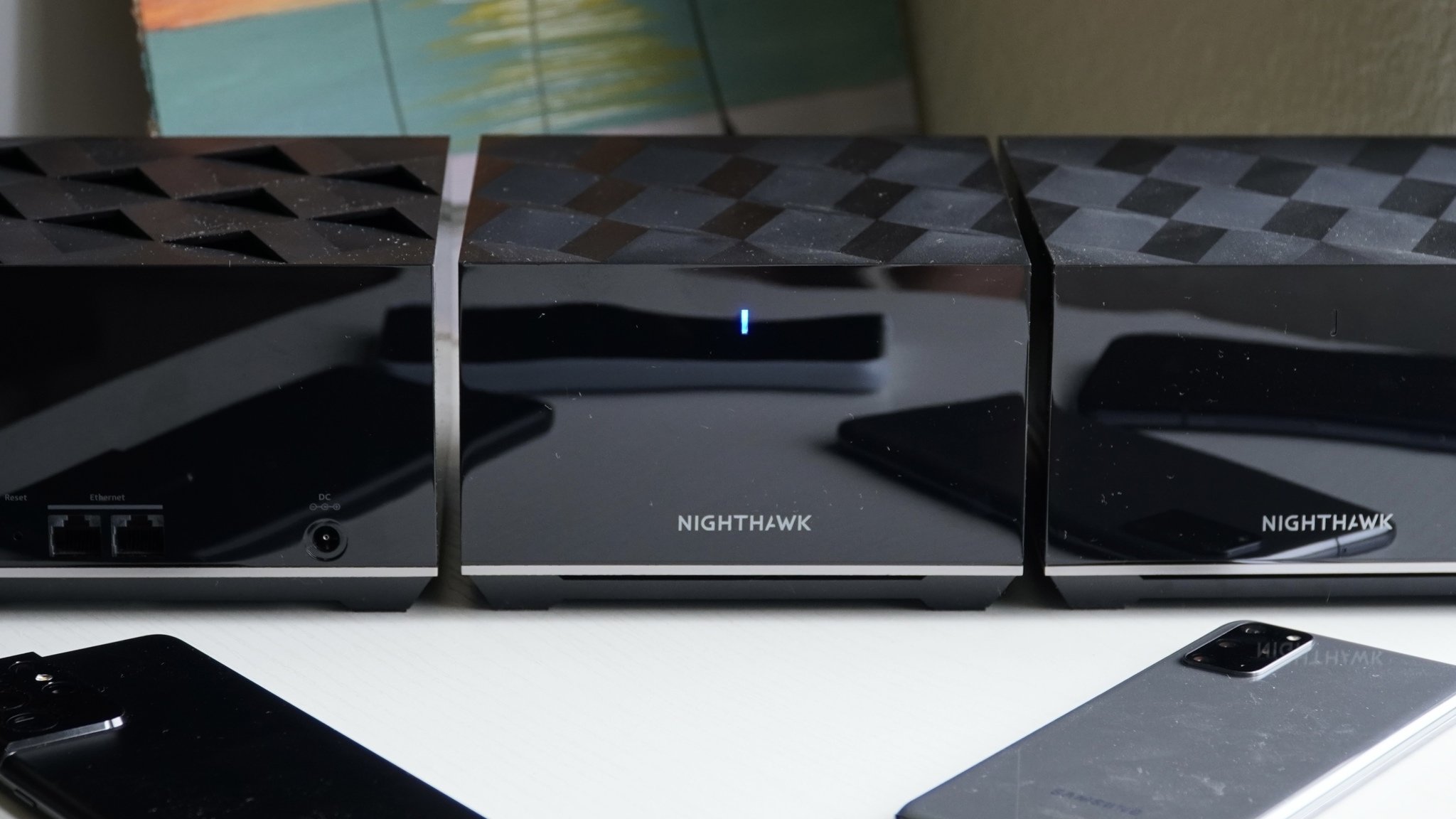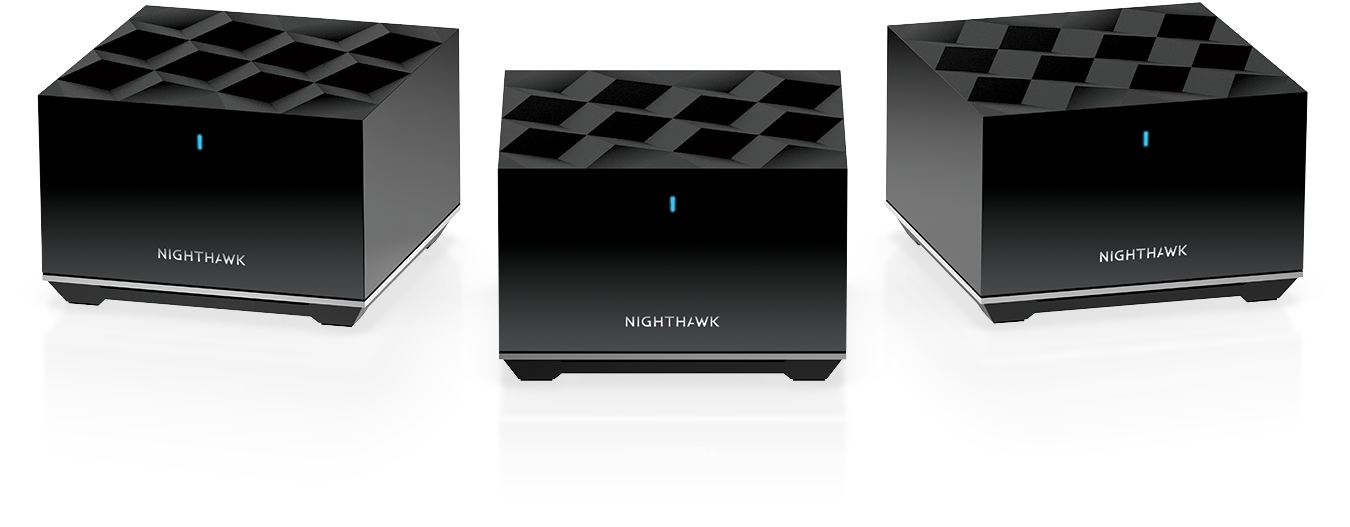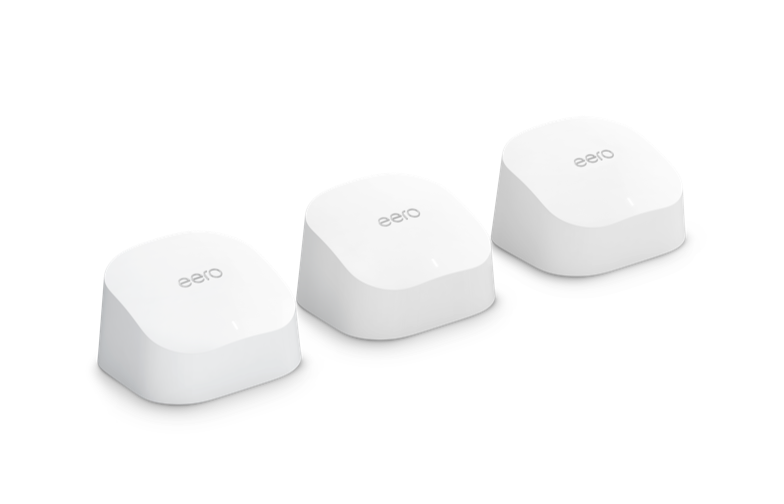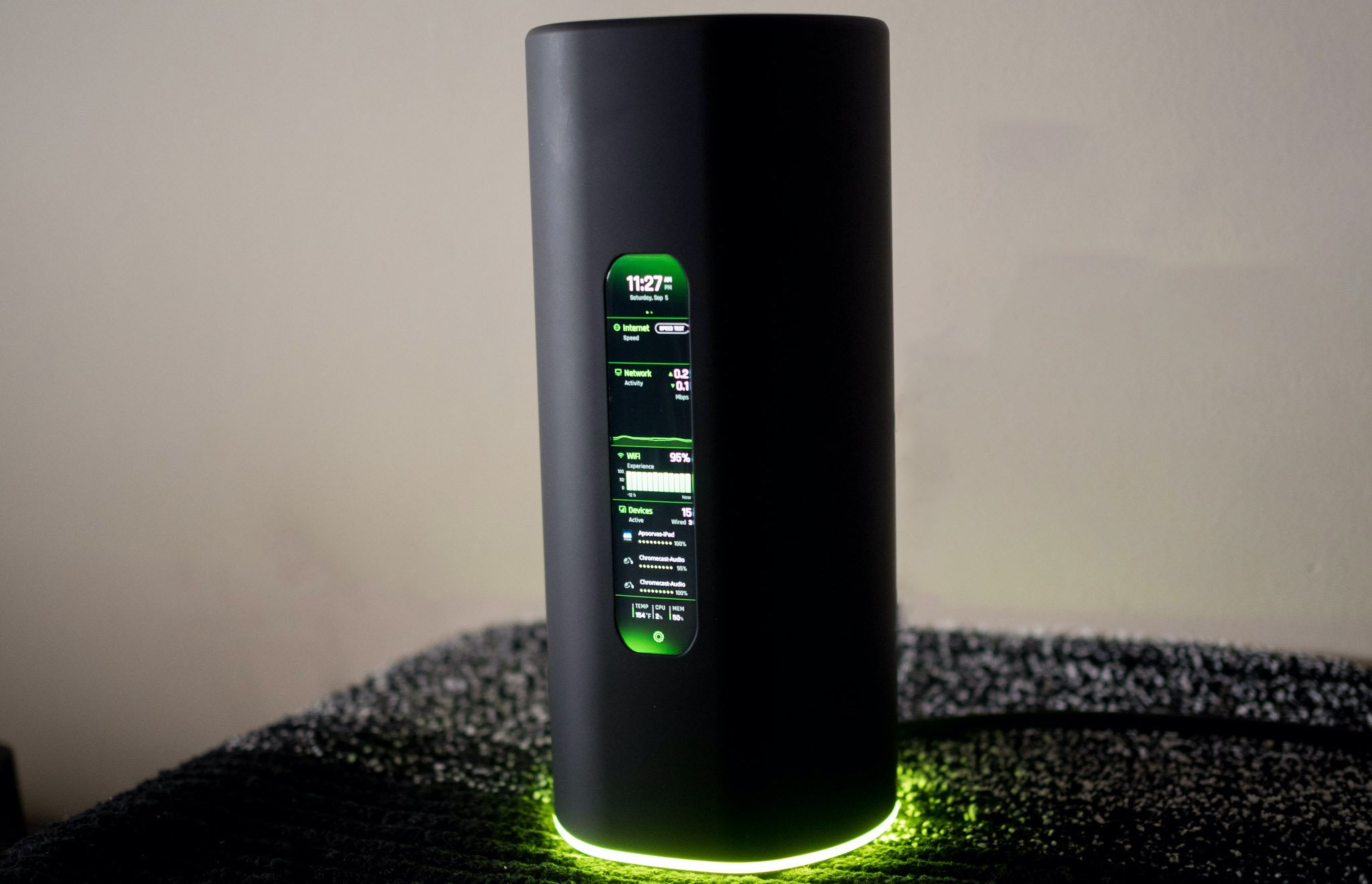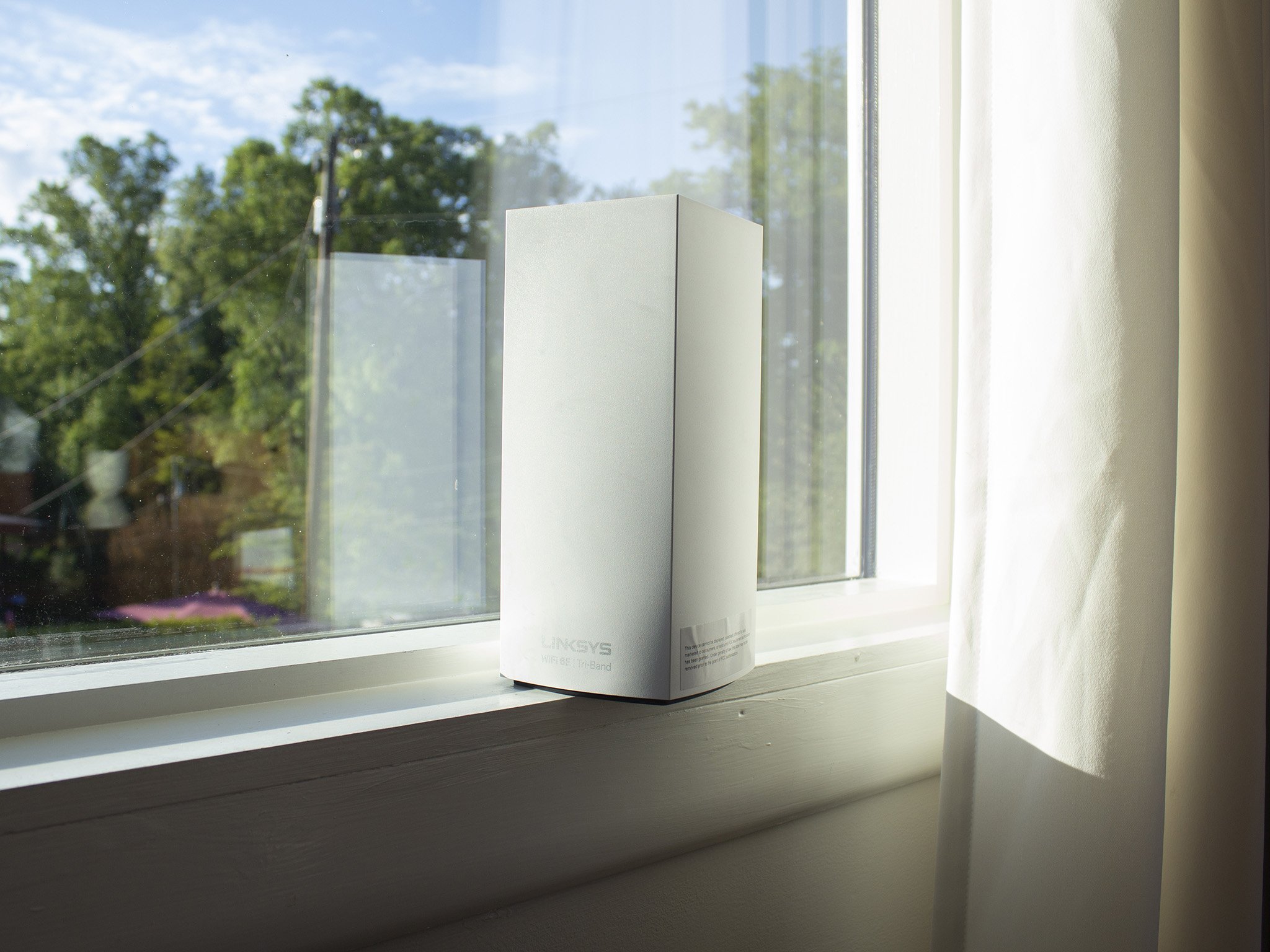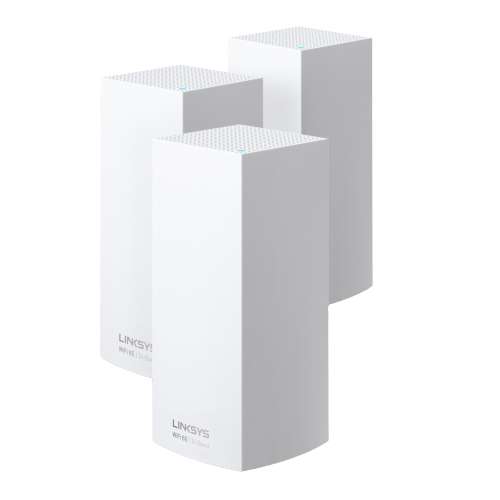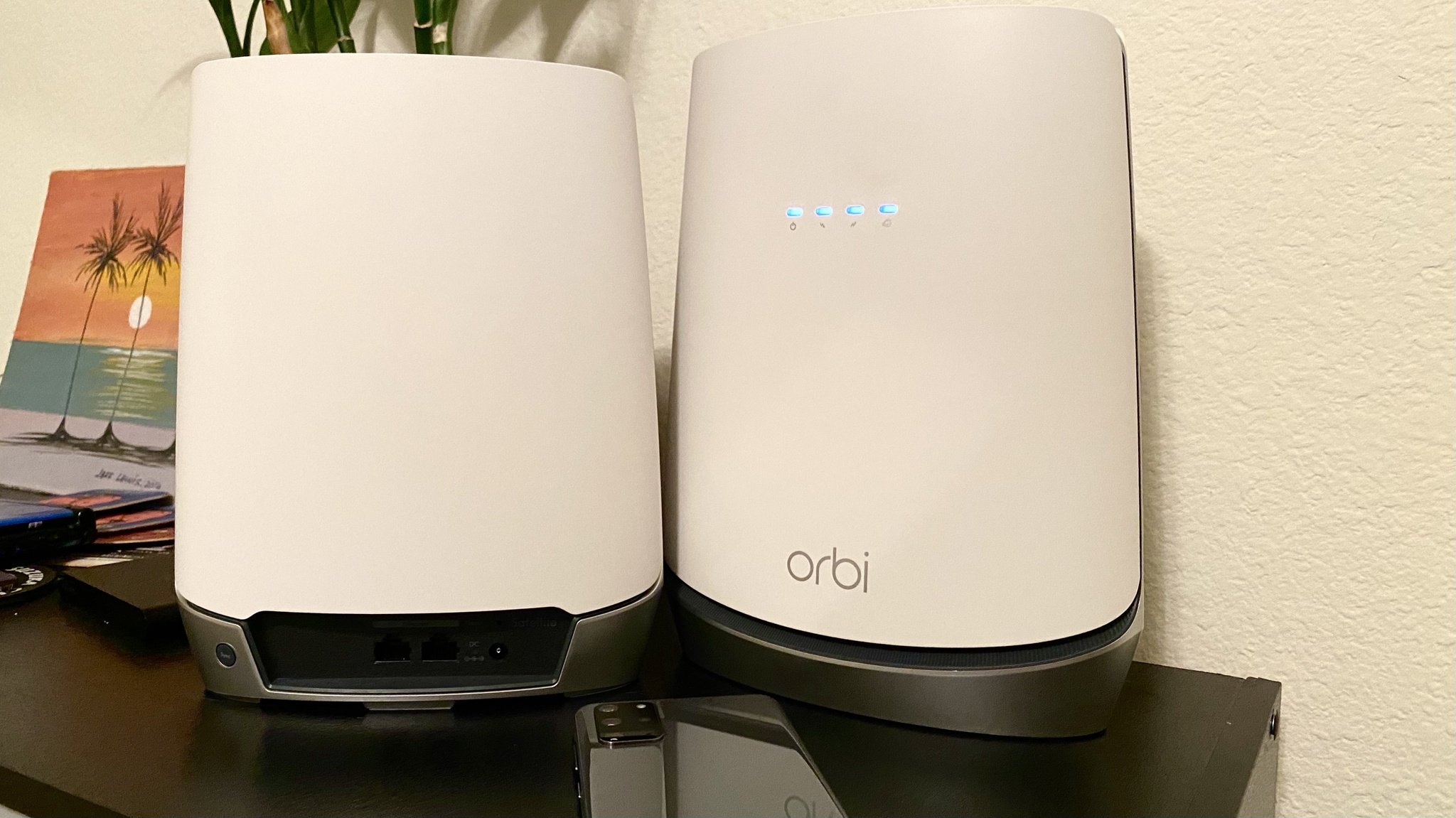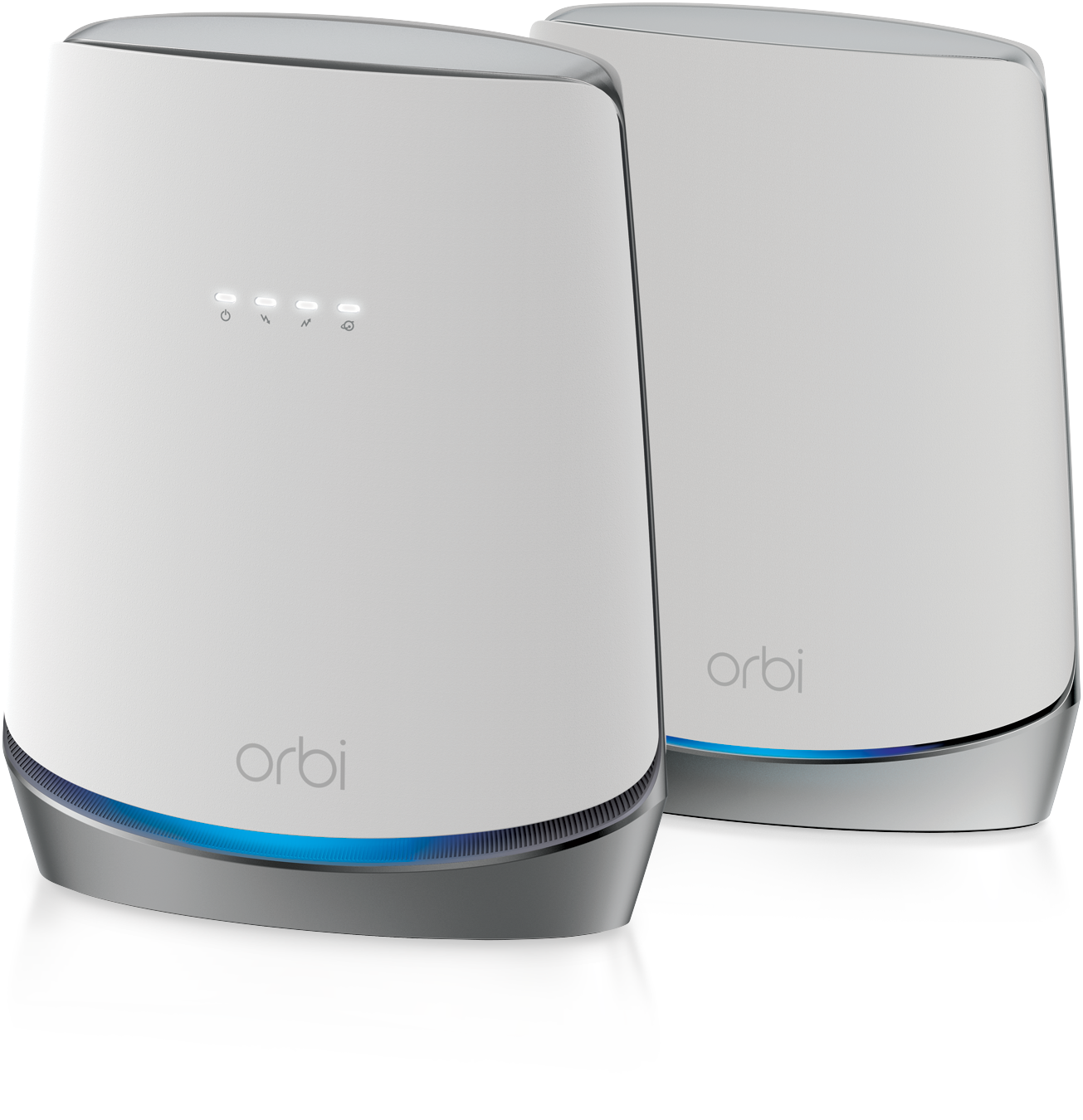The best mesh Wi-Fi systems are networking versions of working smarter, not harder. Compared to a traditional router, mesh systems use several smaller Wi-Fi routers placed around your home to cover you from multiple angles and dodge things like thick walls that can kill your signal. So whether you want top speed and customizability or simplicity and consistency, there's a mesh system that will work in any home. Our top pick goes to Eero, which hits all of the sweet spots of a Wi-Fi system in a small, understated housing that loses obtrusive articulating antennas. But we ranked plenty of other trusted systems as some of the best mesh Wi-Fi routers on the market today, and we've included them all on this list.
Best overall mesh router: Eero
Eero made one of the first consumer mesh Wi-Fi systems, and the company keeps making them better with each revision. The current third generation Eero has the best blend of advanced networking features of any system available, thanks to the small size and compatibility with previous Eeros. It's also compatible with the Wi-Fi 6 Eero systems if you think you might upgrade to Wi-Fi 6 in the future.
Eero isn't trying to be the fastest router. Instead, its primary goal is to offer a solid and reliable connection. The speeds will be fast enough for all browsing and streaming to most people, including 4K content. There are also two Ethernet ports on each unit if you need them.
If you need a bit more speed, you can go and step up and start with the faster Eero Pro or Eero 6. The best part is that all Eeros are compatible, so you can focus on speed where you need it and keep things compact where you don't need as much.
Pros:
- Eero works with all other Eero models
- Small and easy to place
- Two Ethernet on each unit
- Great Android and iOS app
Cons:
- Limited "power-user" settings
- Not as fast as the competition
Best overall
Eero (3-pack)
Small and powerful
Eero creates a strong Wi-Fi experience with a simple and stylish appearance and flexible expansion.
Best value: TP-Link Deco M5
If you want to set up a mesh network that covers the whole house (up to 5,500 square feet) and don't want to break the bank, grab a TP-Link Deco three-pack. You'll get whole-house coverage without ever-changing networks or hopping onto an extender, plus features like prioritizing and parental control. TP-Link also uses adaptive routing to make sure the whole network is as fast as it can be.
From a hardware perspective, you get plenty of speed on Wi-Fi with AC Wi-Fi delivering 400Mbps at 2.4Ghz and 867Mbps at 5Ghz. Two ethernet ports on each help you keep all of your devices connected, even the older ones. Not to mention, it's a smaller size than some, which makes this an easy router to hide in any room's decor.
Pros:
- Inexpensive
- TP-Link HomeCare includes security and parental controls
- Native Alexa support
- Solid AC1300 Wi-Fi (867Mbps + 400Mbps)
Cons:
- Limited "power-user" settings
Best value
TP-Link Deco M5 (3-pack)
Fast Wi-Fi on the cheap
The TP-Link's Deco M5 mesh offers the essential features in a mesh system for less. It looks good and has great coverage.
Best software: Nest Wifi router and point
Nest Wifi starts where Google Wifi left off with a subtle circular design that takes the internal specifications to the next level. The speed gets an upgrade to dual-band AC2200 speeds in the 802.11s standard created for mesh networks with 3,800 square feet of coverage from a router and point. This helps a remote Nest Wifi router or point connect to the strongest possible path, whether direct to the base router or through another mesh point.
WPA 3 support is included with backward compatibility for older devices. Nest Wifi is managed with the Google Home app, which also maintains your other Nest devices. Each Nest Wifi point also comes with a built-in smart speaker with Google Assistant. It's a great bonus for someone deeply invested in Google's ecosystem.
You can expand your Nest Wifi system with additional Nest Wifi routers, the fastest option with the most reliable coverage. You can also connect Nest Wifi points or Google Wifi points in areas that don't need as much speed. The Nest Wifi points are significantly slower with an AC1200 connection and don't offer quite as much coverage at 1,600 square feet. If you want wired Ethernet ports on your node, you will need to use a Nest Wifi router or Google Wifi as the Nest Wifi point does not have any Ethernet ports.
Pros:
- Each router has two Ethernet ports
- Expands with other Nest Wifi routers or points plus Google Wifi
- Excellent Google Assistant integration
- Fast security updates
- Up to date security with WPA3
Cons:
- Google collects analytical data
- Most settings require an active internet connection
- Nest Wifi points lack Ethernet
Best software
Nest Wifi Router and Point
Fast updates
Nest Wifi has a subtle appearance with great performance and features like WPA3 support, frequent updates, and AC2200 Wi-Fi speed.
Most flexible mesh: TP-Link Deco X68
The TP-Link Deco X68 comes with two nodes capable of covering up to 5,500 square feet. The AX3600 tri-band Wi-Fi 6 connection breaks down to 574Mbps on the 2.4GHz band, 1,201Mbps on the lower 5GHz band, and 1,802Mbps on the higher 5GHZ band. This allows the Deco X68 to dedicate one of its 5GHz bands to the mesh link with one left open for wireless devices. This strong mesh connection should allow you to access gigabit internet speeds as long as you have a solid connection. On the back of each node are two Ethernet ports, with one used for the incoming internet connection.
One of the best things about a Deco mesh is the software. Included in the Deco app is TP-Link's HomeShield software that improves security and incorporates parental controls. You can subscribe to access a few more features, but the free set has everything most people need. You can also add nodes to your mesh from the entire Deco line. If you find you need a bit more coverage in one part of your home but don't need a ton of speed, you can add a cheaper dual-band Deco like the X20.
The Deco X68 nodes are nice to look at with a simple matte white housing and a reflective black top. They're pretty small at 6.7 inches tall and 4.1 inches in diameter, so it's not too hard to place them out of sight. For a family that wants to make the most of a gigabit connection without wasting money on speed they can't use, the Deco X68 is a great choice.
Pros:
- Fast AX3600 tri-band speeds
- Compact nodes
- Works with all other Deco nodes
- HomeShield includes parental controls
Cons:
- Only two Ethernet ports per node
Most flexible
TP-Link Deco X68
A tri-band mesh that works with all other Deco nodes
The Deco X68 has a tri-band Wi-Fi 6 connection that allows for a fast mesh link and great compatibility with other Decos.
Best tri-band coverage: Netgear Nighthawk MK83
Netgear is no stranger to mesh systems starting with Orbi, but if you're looking for a fast and compact system, the Nighthawk MK83 is a great choice. In a sleek black housing, the MK83 system contains one MR80 router and two MS80 satellites. This enables the system's massive 6,750 square feet of coverage.
The Nighthawk MK83 delivers speeds up to 3.6Gbps. This breaks down to two 5GHz bands at 1800Mbps and 1200Mbps plus a 2.4GHz band at 600Mbps. One 5GHz band is dedicated to maintaining the mesh connection with the other band left to devices. Three open Ethernet ports on the back of the MR80 should be enough for most people, but two are available on each MS80 satellite.
One of the biggest draws to this system is the compact black nodes measuring just 5.51 inches wide and 3.62 inches tall. This compact size will help users place them where they make the most sense. Finally, the Nighthawk app is just the Orbi app with dark mode, which is good. You can sign up for Netgear Armor, manage connected devices, and even test your connection speed in each room. Naturally, Netgear also allows you to manage your network in a web browser for more advanced controls.
Pros:
- Consistent speeds with tri-band Wi-Fi
- Compact nodes makes placement easy
- App setup with an optional web interface
- Plenty of Ethernet ports (3 + 2 + 2)
- Great coverage
Cons:
- Netgear Armor is expensive
- Expansion requires satellite units
Best tri-band coverage
Netgear Nighthawk MK83
Compact tri-band mesh
Netgear Nighthawk MK83 is a fast tri-band mesh system with plenty of Wi-Fi 6 speed and wired connectivity options for most people.
Best entry-level Wi-Fi 6 mesh: Eero 6
Eero 6 is the next logical step for the Eero platform, keeping a very similar small footprint while increasing speed and capacity with Wi-Fi 6. Compared to the standard Eero, rates are increased from AC1300 to AX1800 thanks to Wi-Fi 6. Eero 6 is a good fit for connections up to 500Mbps. Two Ethernet ports on the main router allow you to connect a single wired device if needed. This can be a network switch if you have multiple wired devices, though it somewhat ruins an Eero setup's simplicity.
Mesh expansion will mainly be handled by the Eero 6 Extender featuring identical wireless capabilities to the Eero 6, but it lacks any Ethernet ports. The reduced cost compared to the router will make the Extender an excellent choice for most people. You can also buy another Eero 6 router for expansion if you need the Ethernet ports somewhere, such as a home office. All other Eeros can be used for expansion as well if you already have them.
Eero 6 also comes with the same Eero Secure options as other Eero devices customers to easily manage their network and internet security solutions from one source.
Pros:
- Wi-Fi 6 enables faster speeds on new devices
- AX1800 speeds are plenty for most people
- Compact size
- Easy setup and expansion with the Eero app
- Eeros work with all other Eeros
Cons:
- Extender doesn't have any Ethernet
- Advanced security requires a subscription
Best entry-level Wi-Fi 6 mesh
Eero 6 (3-pack)
A simple Wi-Fi 6 upgrade
Eero 6 is a great choice for someone that doesn't need a ton of speed but wants plenty of coverage with an easy setup process.
Best Wi-Fi 6 mesh upgrade: AmpliFi Alien
The AmpliFi Alien is a great mesh router even if it's a bit expensive. Even so, you get fast Wi-Fi 6 speeds with eight 5GHz Wi-Fi 6 streams delivering 4803Mbps and four more 2.4GHz streams for another 1148Mbps. There is also a third 5GHz Wi-Fi 5 band with 1733Mbps thanks to four streams which can make the most of the fastest Wi-Fi 5 devices. Four Ethernet ports around the back mean you're not giving up any functionality either. Remember that the WAN port is limited to gigabit speeds, so there's no multi-gigabit wired support here.
The AmpliFi Alien has a great, thoughtful design that puts the permanent connections, WAN, and power on the bottom of the device, allowing for a clean Wi-Fi-only setup. Keep in mind that the Alien can only be expanded with other Alien routers or an Alien extender included in a two-pack. Unfortunately, there aren't any cheap mesh expansion options available, but at least your mesh speeds will remain high.
This router only comes in matte black with a color display on the front, informing you about your network performance. So if you're the type of user that likes to keep on top of your network's performance at all times, Alien lets you stay informed without opening the app.
Pros:
- Wi-Fi 6 with 16 streams
- Tri-band with up to 7685Mbps total speed
- Four Ethernet ports for expansion
- Color display
- Great software, including AmpliFi Teleport
Cons:
- No multi-gig Ethernet
- Only expandable with other Alien routers or points
Best Wi-Fi 6 mesh upgrade
AmpliFi Alien
Great AmpliFi design and software with Wi-Fi 6 speeds
Ubiquiti brings Wi-Fi 6 to AmpliFi with the Alien featuring 16 streams for incredible speeds and a color display on the front.
Best Wi-Fi 6E mesh: Linksys Atlas Max 6E
The Linksys Atlas Max 6E is an absolute beast when it comes to WI-Fi 6E performance thanks to its incredible tri-band Wi-Fi 6E performance. Wi-Fi 6E takes Wi-Fi 6 performance to the next level by using the newly available 6GHz spectrum to offer much greater capacity for 160MHz connections even with a lot of congestion.
Even though 6GHz Wi-Fi doesn't yet have the same power available as 5GHz, with a solid connection, it makes a very fast backhaul with very little interference. There are many more 160MHz channels available at 6GHz, so the router can easily find a clean channel. That means the connection between nodes stays as fast as possible, even when you have a lot of neighbors. Linksys doesn't hold back on wired connectivity either with four Ethernet ports per node with a 5Gbps WAN uplink.
Everything is set up in an app and only takes a few minutes to get online. Linksys has even implemented two-factor authentication over email, improving remote access security. If you're looking to get the most performance possible out of a Wi-Fi 6 mesh system, the Atlas Max 6E is the best you can get for the time being.
Pros:
- Extremely fast Tri-band Wi-Fi 6E AX8400 speeds
- Four LAN Ethernet ports per node
- Fast 5Gbps Ethernet WAN port
- Wi-Fi 6E wireless backhaul
Cons:
- Large nodes
- Very expensive
Best Wi-Fi 6E mesh upgrade
Linksys Atlas Max 6E
Unlock even greater Wi-Fi 6 speeds
The Linksys Atlas Max 6E is one of the fastest mesh Wi-Fi systems you can buy with incredible Wi-Fi 6E speeds and capacity.
Best mesh with a modem: Netgear Orbi CBK752
When you start planning a mesh system, it can be a bit overwhelming. In many cases, people are going from a single piece of networking gear to three or four. If you're looking for a mesh system that integrates a little more cleanly into your home, the Netgear Orbi CBK752 comes with one of the fastest cable modems you can buy today, as well as some of the quickest Wi-Fi performance you can get today. With a theoretical max of 2.5Gbps, the included DOCSIS 3.1 modem will be able to keep up with the fastest speeds any cable provided has today and in the next few years.
The included mesh hardware is nearly identical to the above RBK752 system. A tri-band AX4200 connection has a dedicated 2,400Mbps backhaul with a further 1,200Mbps and 600Mbps available for devices. The included satellite is also capable of the same speeds. Of course, you can save money by buying a slower Orbi modem, but the CBK752 strikes a good balance between speed and coverage. It's a top choice for gigabit cable internet customers.
Like all Orbi systems, network expansion is limited, with only a few standalone satellite upgrades being compatible. So don't buy a full RBK752 or RBK753 system expecting to expand with the base router. Only satellites can be used to expand an Orbi system. Still, with one or two satellites, even large homes should have great coverage.
Pros:
- A built-in modem simplifies the networks setup
- One of the fastest modems you can buy
- Fast tri-band Wi-Fi 6 speeds
- 4 Ethernet on the router plus 2 on the satellite
- Compatible with RBS750 and RBS850 satellites
Cons:
- Very large for its power and speed
- Can only be expanded with specific satellites
Best with a modem
Netgear Orbi CBK752
A complete package for cable internet users
The Orbi CBK752 combines the power of RBK752's system with a faster DOCSIS 3.1 modem that supports gigabit cable internet speeds.
Bottom line
Mesh wireless systems need to do two things right: be reliable and provide coverage everywhere you need it. It's also worth considering if you even need a mesh system since many of the best wireless routers are a big enough upgrade without mesh support. On the other hand, if you need extra coverage, there's a mesh system for just about any set of needs, and all the kits on our list do a great job at both. Sometimes, though, it's the tiny details that decide which product is best for you. And if you need additional speed, our roundup of the best Wi-Fi 6 mesh routers should be your next read.
Overall, Eero manages to offer the best total package. It has enough speed for most average users while keeping its physical footprint small enough to blend in with the decor in any room. It's also nice that you can upgrade your Eero mesh down the line with faster routers. Eero also has an excellent app that guides you through everything from setting it up to adding more units or changing the user settings. The time and attention to detail in both the hardware and the app is impressive, and we think anyone in the market for a new Wi-Fi setup would love what Eero has to offer.
Credits — The team that worked on this guide
![]()
Samuel Contreras When Samuel is not writing about networking, he spends most of his time researching computer components and obsessing over what CPU goes into the ultimate Windows 98 computer. It's the Pentium 3.
Source: androidcentral
